Felix KLINGELHOEFER, PhD
Welcome to my professional webpage! If you want to find information about my life and work, you have come to the right place.
Welcome to my professional webpage! If you want to find information about my life and work, you have come to the right place.
I was born in Germany of American, German and French parents. We soon moved to France, and then to Cambridge in the U.K. from the age of 3 to 5. After that I spent the rest of my childhood in the western most tip of France, in Brittany. There, I attended the Lycée Amiral Ronarc'h, were I obtained a scientific baccalauréat with honors ("mention très bien"). This international upbringing allowed me to learn three languages (French, English and German) that I still speak fluently to this day.
My studies then led me to the lycée François René de Chateaubriand in Rennes for the next two years of my life. There, I had a focus on math, physics and computer science (MPSI->MP*). At the end of these preparatory classes, I passed the entrance exam for the Ecole Normale Supérieure de Lyon, where I finished my Bachelor's degree, and a Master's in fundamental computer science. I then did a thesis at the University Grenoble-Alpes, under the supervision of Alantha Newman.
During my studies, and my internships, I developed a particular interest towards the fields of machine learning and algorithmics. I had the opportunity to discover many of its aspects: Deep learning, Transfer learning, Metric learning and even some Quantum machine learning, which were all fascinating. In my personal life I have a strong attachment to traveling, which comes in part from my multi-national origins. I love discovering new cultures and landscapes, and believe it also makes me a more tolerant and open-minded person. I also grew a deep attachment to the mountains, and all the great outdoor activities they allow: skiing, ski-touring, hiking and biking.
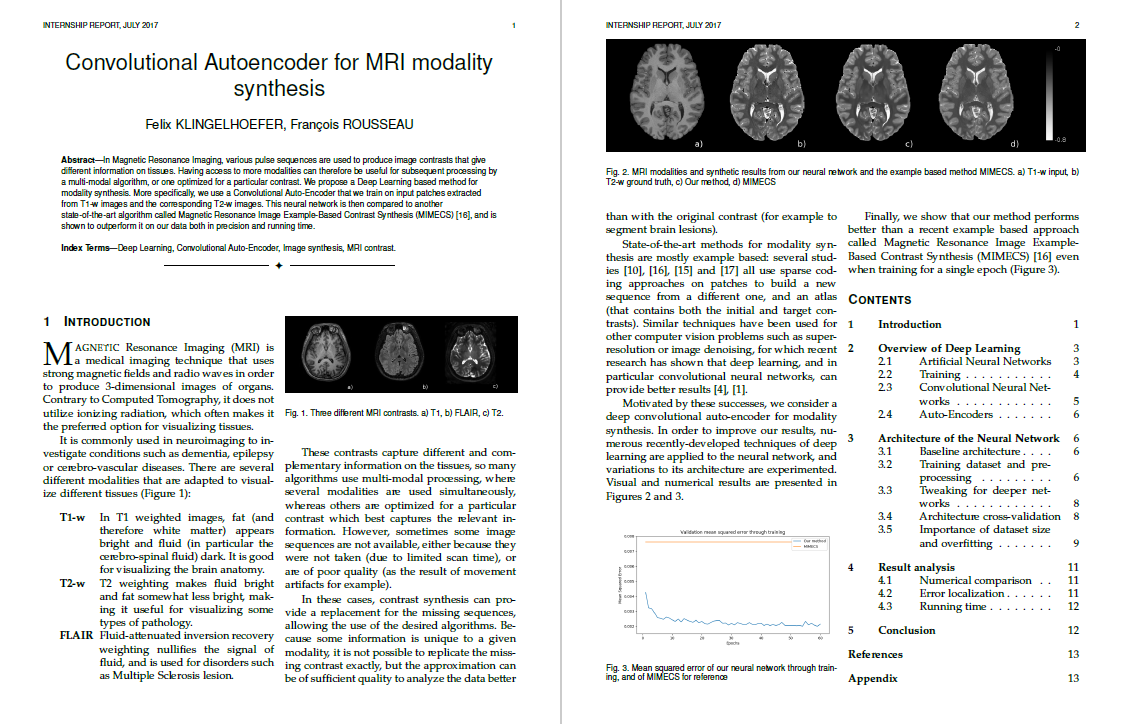
I did a six week internship at the Institut Mines-Télécom Atlantique were I developed Autoencoder networks to transform one modality (type) of MRI images into another.
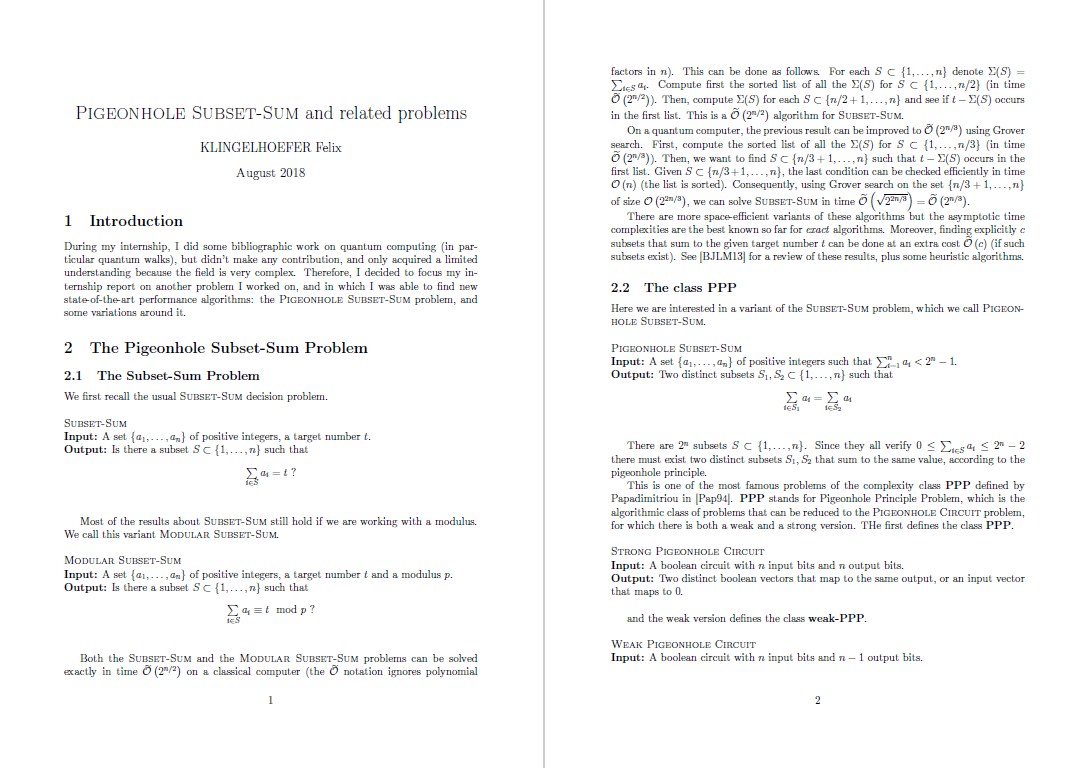
I went to Singapore for three months, to do an internship at the Center for Quantum Technologies. There, I worked on quantum algorithms, and even devised a new one for a variation of the Subset-Sum problem called Pigeonhole Subset-Sum.
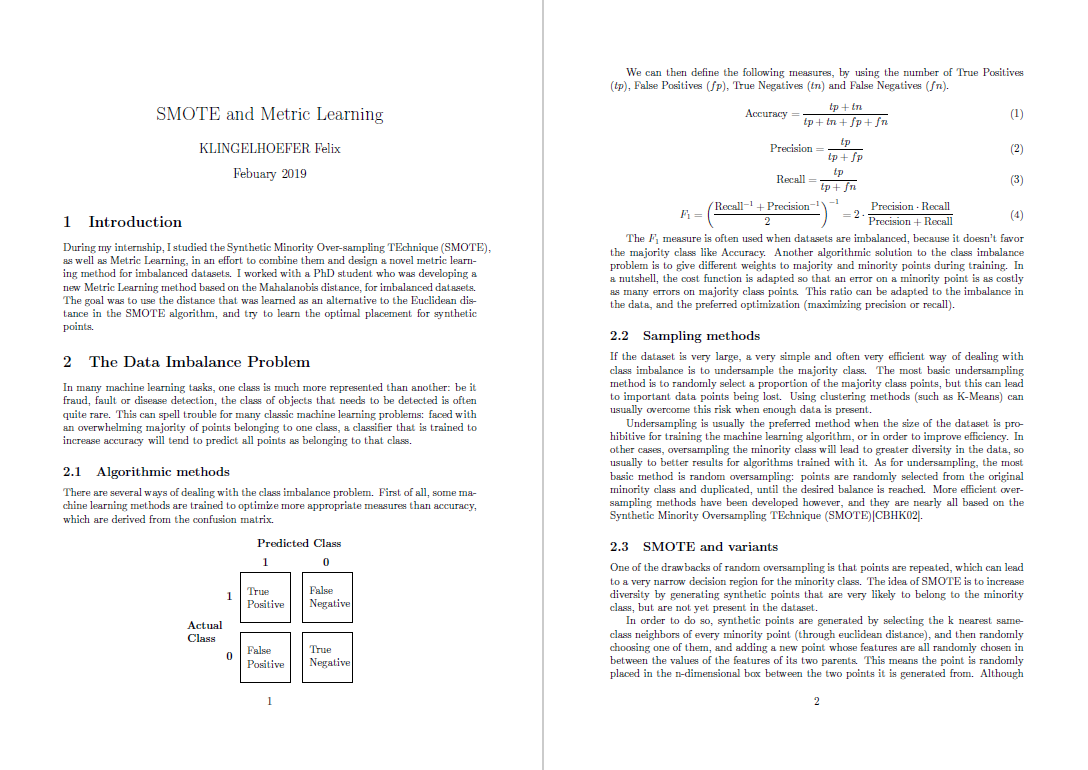
I spent four months at the Université Jean Monnet in Saint-Etienne, working on a way to combine metric learning with the famous supersampling algorithm SMOTE, used to handle the class imbalance problem.
During a 5-month interniship at Worline in Lille, I used novel transfer learning techniques to leverage credit card fraud data on smarthpone e-payment fraud detection. The report is not available due to the confidentiality of the data.
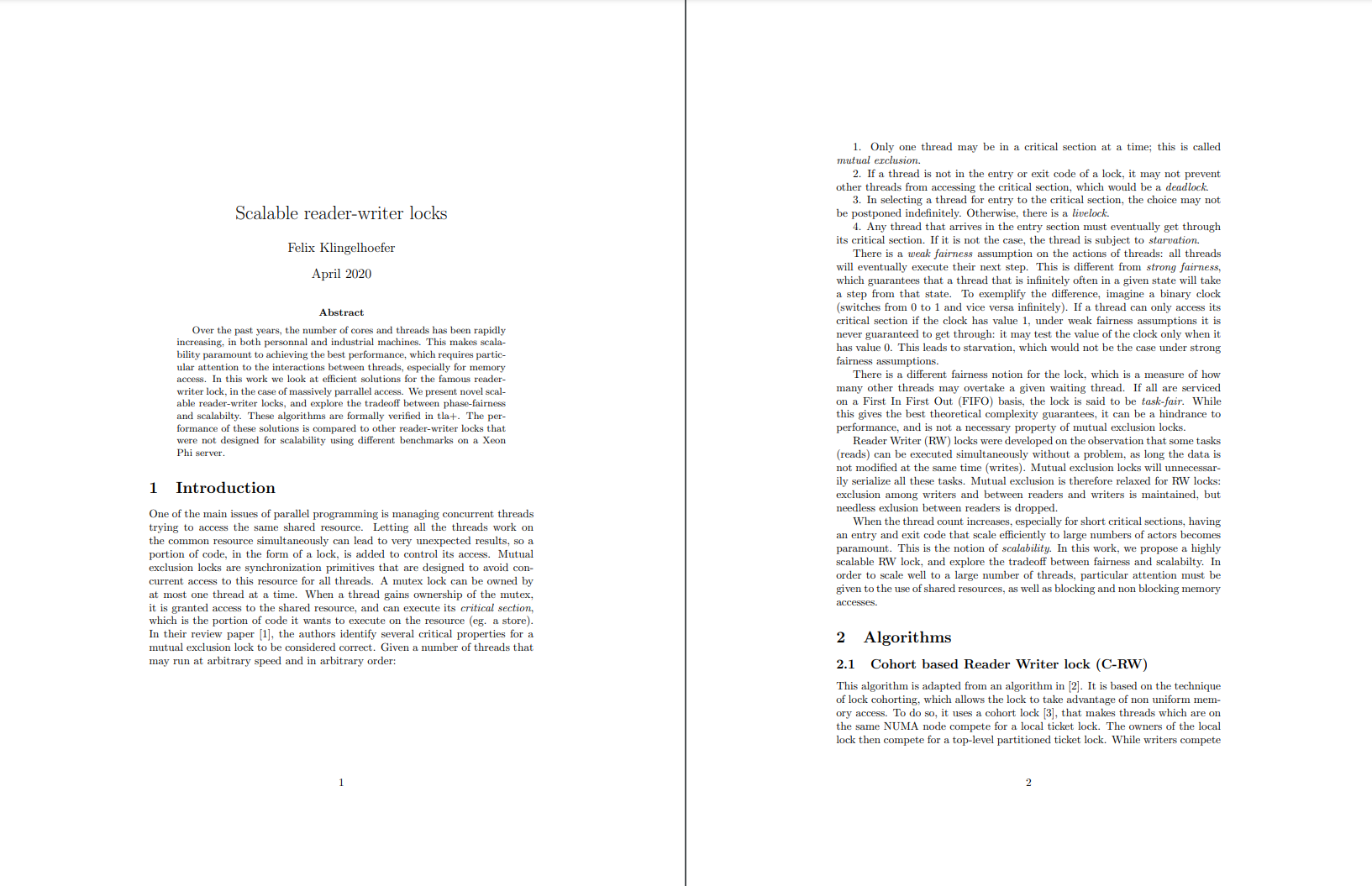
I spent four months in Switzerland, at the University of Neuchâtel. There, I studied the scalability of reader-writer locks, and designed new ones balancing the requirements of phase-fairness and massively parrallel access.
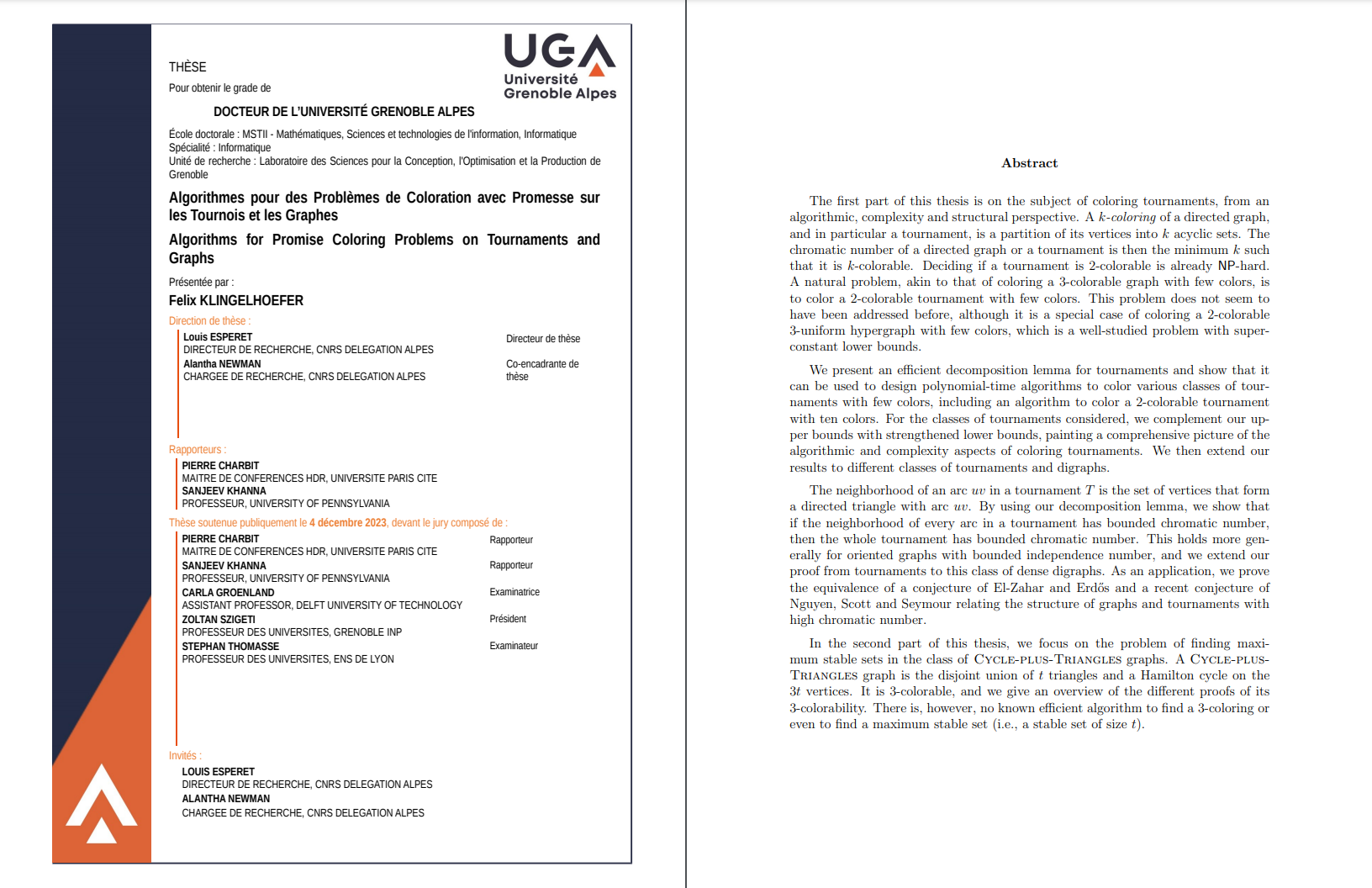
During my Thesis, supervised by Alantha Newman, I worked on designing efficient algorithms for problems on graphs with promises or extra information.
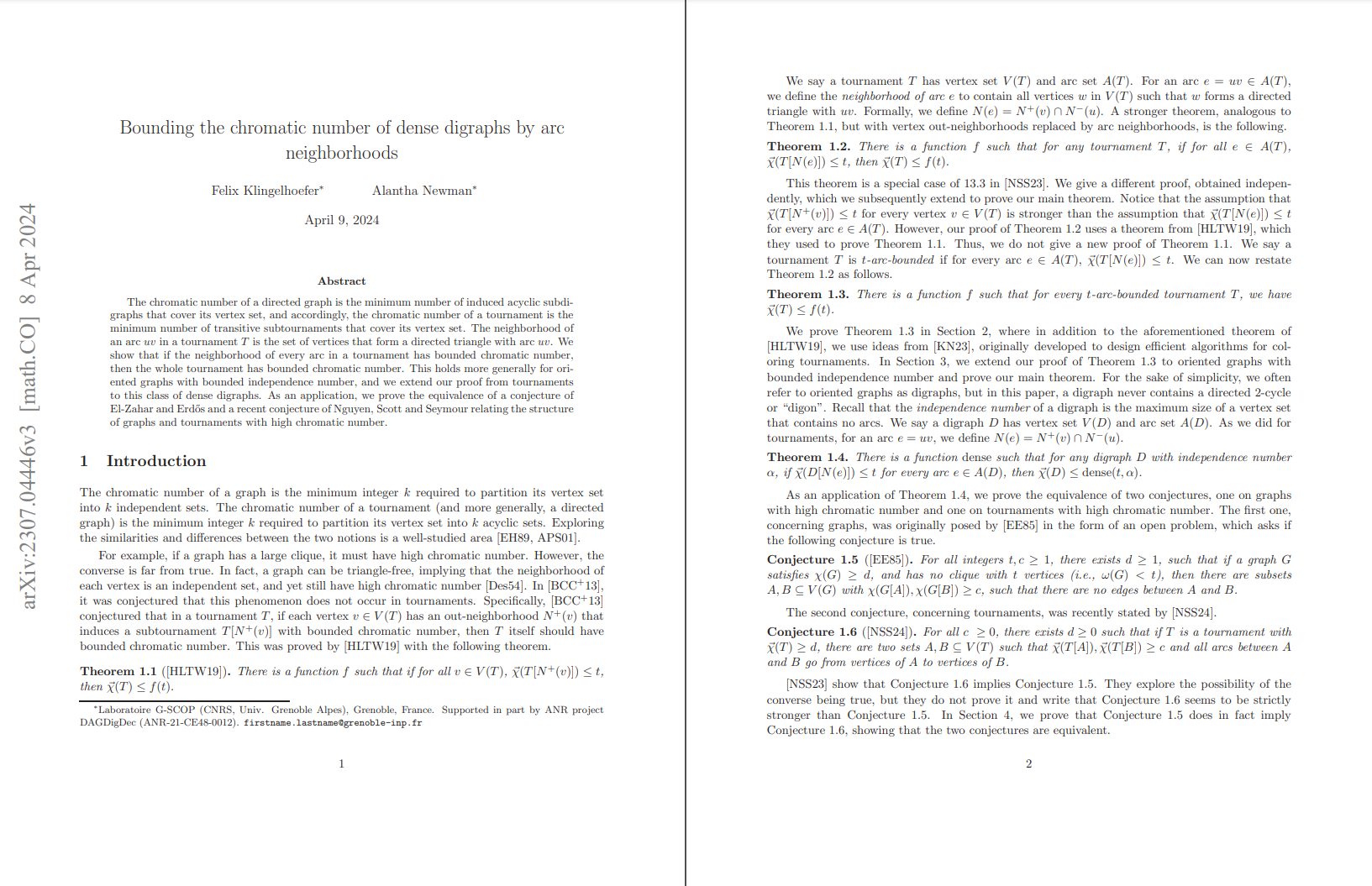
Felix Klingelhoefer and Alantha Newman. Published in Combinatorica.
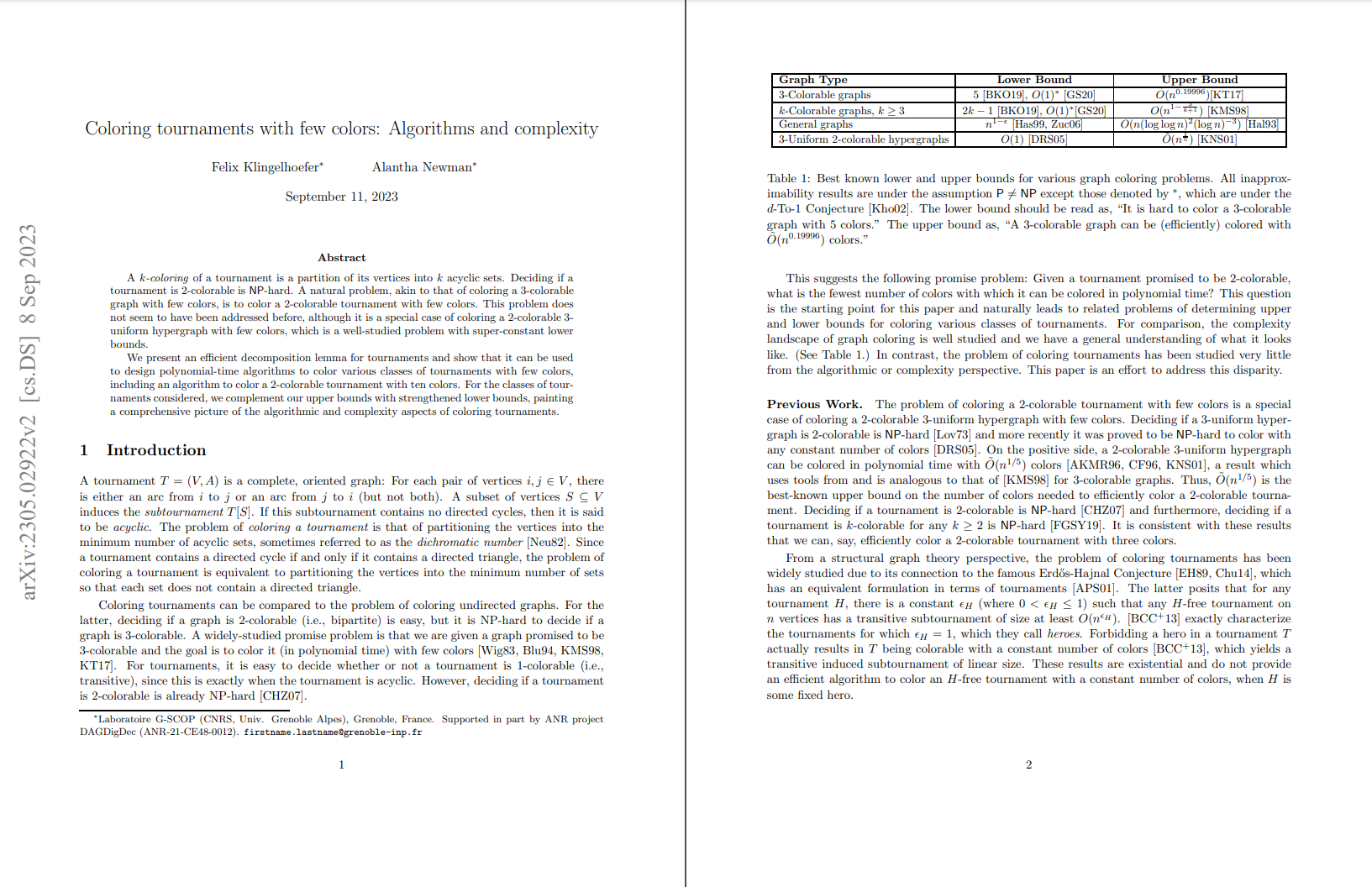
Felix Klingelhoefer and Alantha Newman. Published in The European Symposium on Algorithms (ESA) 2023.
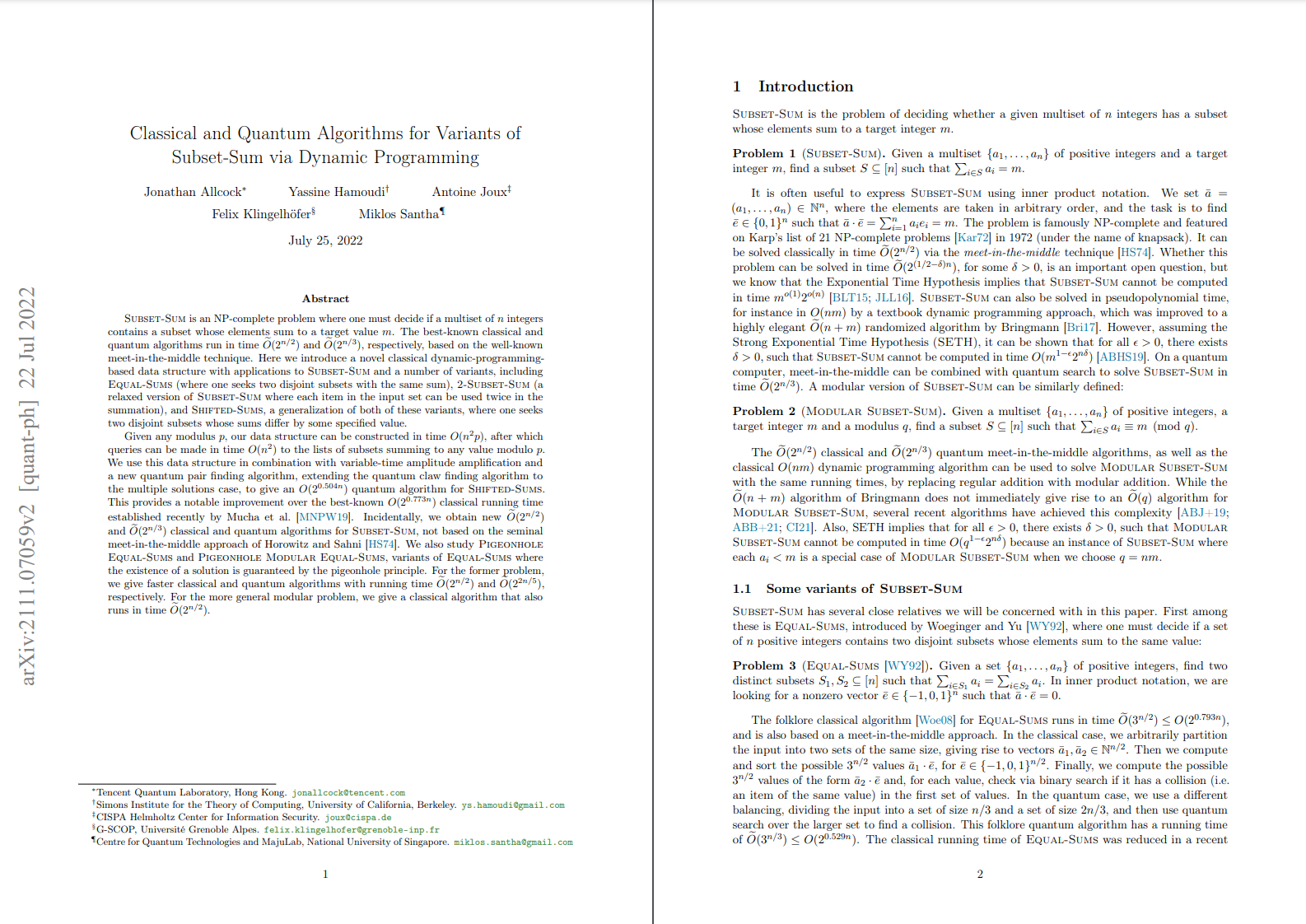
Jonathan Allcock, Yassine Hamoudi, Antoine Joux, Felix Klingelhoefer and Miklos Santha. Published in The European Symposium on Algorithms (ESA) 2022.
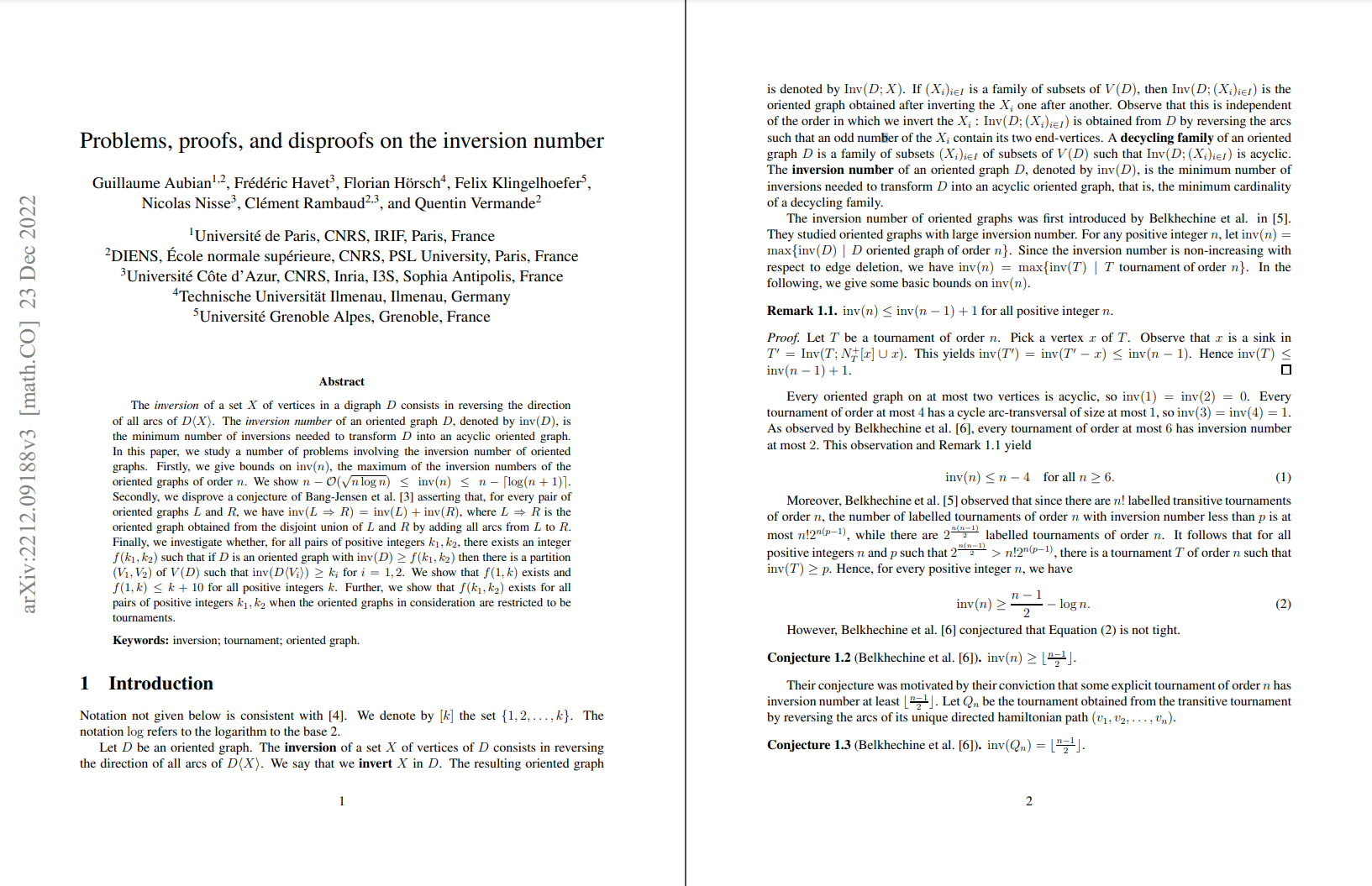
Guillaume Aubian, Frédéric Havet, Florian Hörsch, Felix Klingelhoefer, Nicolas Nisse, Clément Rambaud and Quentin Vermande. Manuscript.